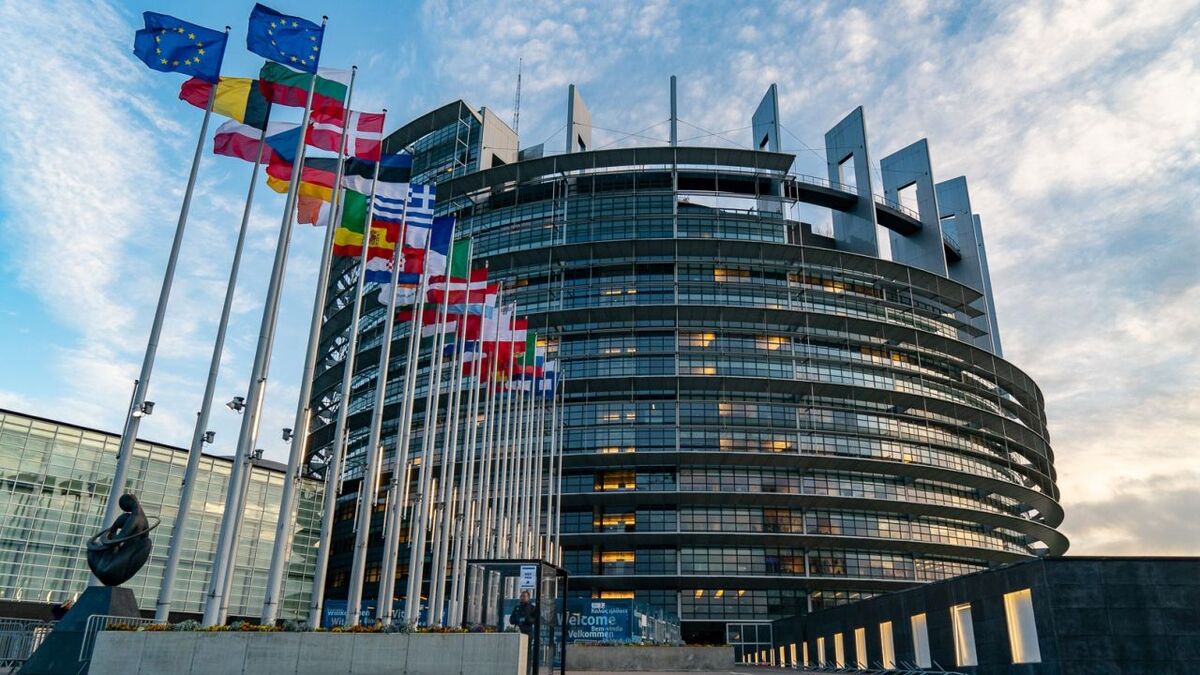Broad support declared by groups from shipowner associations to environmental NGOs for reforms including expanded coverage, charterer pays and dedicated funding for decarbonisation research
By a wide margin, the European Union Parliament’s Environment Committee (ENVI), voted for a series of proposed amendments to the EU Emissions Trading System (EU ETS) that would see shipping included in the cap-and-trade carbon market.
Among the changes related to shipping that were supported within the committee’s position on the proposed amendments to the EU’s ’Fit for 55’ legislative package, are an expansion of the EU ETS to cover 100% of voyages with calls in the EU by 2028, contractual obligations for vessel charterers to pay ETS costs and 75% of ETS revenues from shipping to be earmarked as funding for shipping’s decarbonisation transition.
“As requested several times by Parliament, the ETS would now finally be extended to maritime transport,” a statement from the EU’s Environment Committee said.
“MEPs want to cover 100% of emissions from intra-European routes as of 2024 and 50% of emissions from extra-European routes from and to the EU as of 2024 until end of 2026. From 2027, emissions from all trips should be covered 100% with possible derogations for non-EU countries where coverage could be reduced to 50% subject to certain conditions. MEPs also want other greenhouse gas (GHG) emissions than CO2 to be included, such as methane nitrous oxides. 75% of the revenues generated from the auctioning of maritime allowances shall be put into an Ocean Fund to support the transition to an energy-efficient and climate-resilient EU maritime sector.”
The package of revisions passed with 62 votes for, 20 against and 5 abstentions and the MEPs report will go in front of the EU Parliament’s plenary session 6-9 June before going to Trilogue negotiations between EU Parliament, EU Council and the European Commission once the plenary vote is final.
The package of revisions were broadly welcomed by many, including the European Community Shipowners Association (ECSA), a conglomeration of 19 shipowner member associations in the EU and Norway, which said, “The outcome of the vote in the Environment Committee is a good starting point for the future negotiations between the European Parliament and the Council”.
ECSA highlighted the Parliament’s commitment to enforce the ‘polluter-pays’ principle, “by ensuring the mandatory pass-through of the ETS’ costs to the commercial operators of the vessels through contractual clauses”. ECSA also said it supported the Parliament’s proposal for the decarbonisation transition-focused Ocean Fund’s creation from 75% of the revenues generated by the shipping allowances within ETS.
Brussels-based NGO Transport & Environment (T&E) declared the measures a “big win for shipping”.
T&E sustainable shipping officer Jacob Armstrong said, “Shipping’s right to pollute for free is finally coming to an end. The Environment Committee has proposed a climate-ambitious carbon market that works for industry and for the climate. The European Parliament Plenary must now rubber stamp this proposal so we can start to take advantage of the ETS revenues and begin shipping’s long-delayed voyage towards decarbonisation.”
Both ECSA and T&E cited further work and highlighted the yet-to-be decided treatment of ice-class vessels.
Representing freight carriers, the World Shipping Council (WSC) said it welcomed the crucial step towards achievement of the EU’s Green Deal but said improvements to the ETS proposal are needed, calling for the addition of lifecycle emissions accounting measures as incentives for uptake of lower-carbon and renewable fuels, limitation of ETS coverage to Intra-EU voyages and shipowners and operators sharing EU ETS costs.
“Policymakers in the European Parliament have a key responsibility in working for good policy and ensuring the EU ETS carbon price is not simply a tax but also an incentive that drives sustainable change. While WSC acknowledges the ENVI Committee’s commitment to strengthening the EU’s climate ambitions through the reform of the EU ETS, the report adopted in the ENVI Committee could put at risk the needed drive to reduce GHG emissions in the maritime sector,” WSC said.






